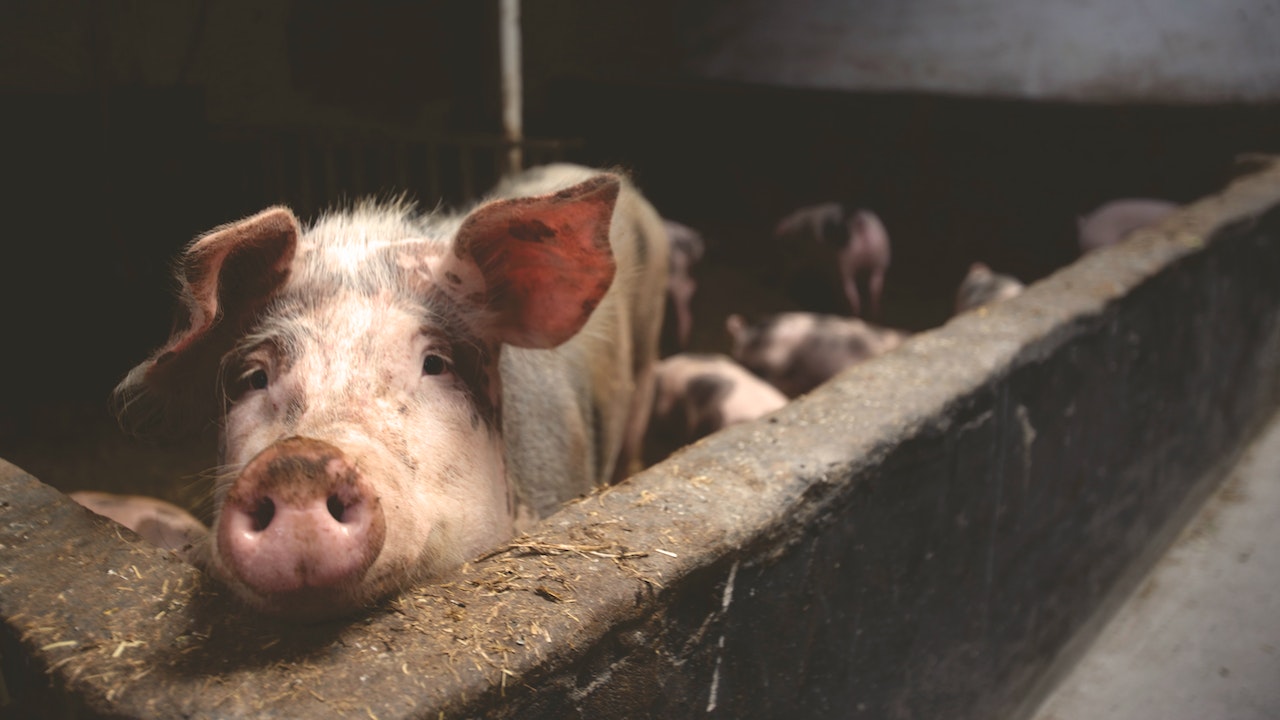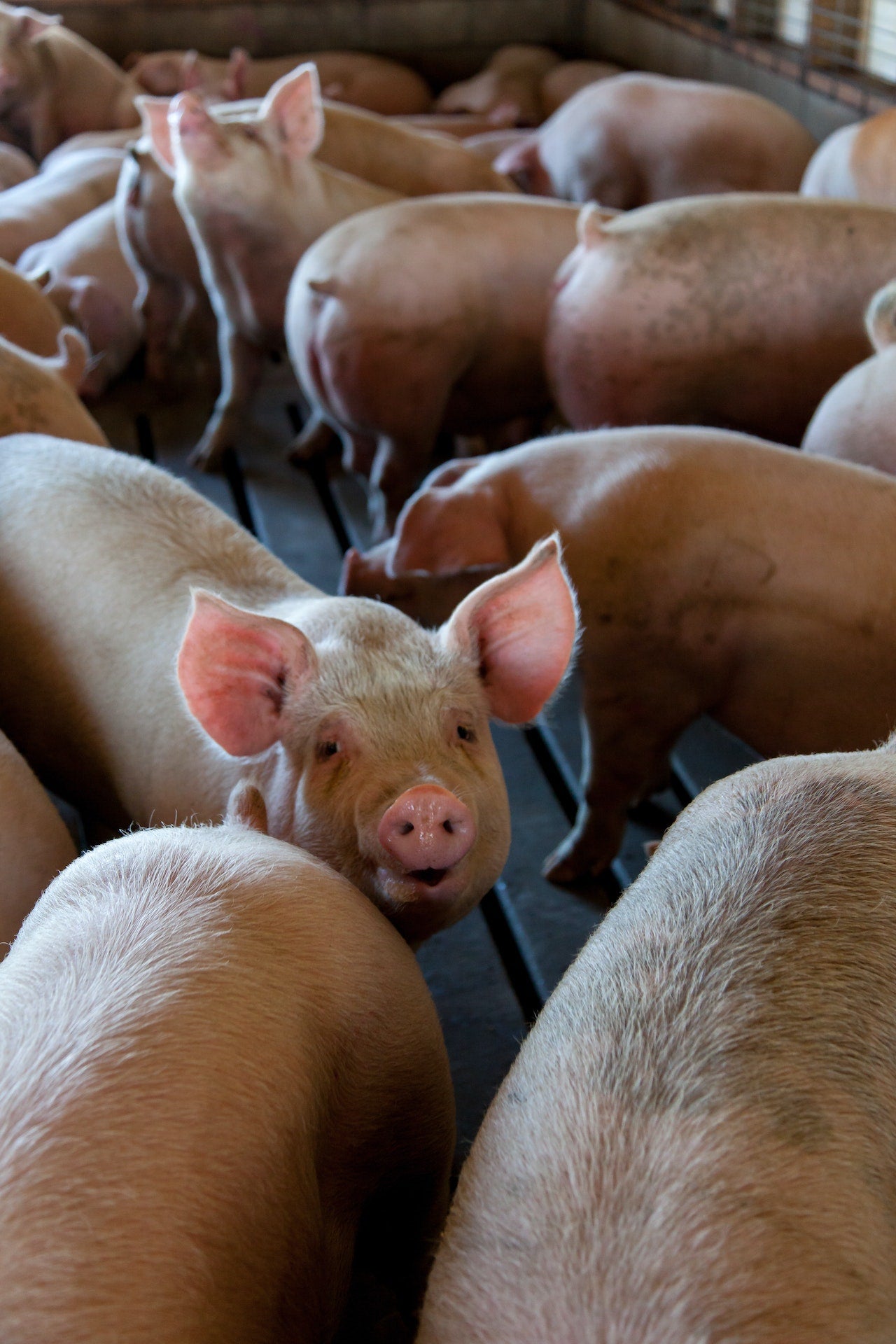
There are plenty of fruits all over the world. Some, we are already aware of; some we aren't. Fruits are one of the numerous blessings on earth. Pigs are omnivorous, meaning they can eat both plants and animals' food origin. Therefore, fruits can be categorized under the plant's food origin.
Can pigs Eat fruit?
Yes, the majority of the fruits are safe for consumption by pigs. The only thing to be cautious about is the number of fruits you feed your pets. Some of these fruits contain cyanide, which leads to cyanide poisoning if consumed too much.

Some Fruits that are Safe for Pigs
Pigs can sometimes be picky eaters. They may not like some fruits, although they are safe. They might also develop a preference for one fruit over another. This is why you should study your pets' preferences.
Here are some of the fruits that are safe for your pigs to eat in moderation. Note that we would only be discussing the common ones here.
- Banana
- Orange
- Pear
- Watermelon
- Apples
- Strawberry
- Pineapple
- Grapes
- Mulberry
- Cucumber
- Banana
Bananas are one of the pig’s favorites! Bananas can safely be fed to pigs with the peel on, but it is important to slice them before feeding them to avoid choking.
Bananas are healthy and provide a balanced diet for pigs, but always remember that everything should be fed in moderation. Bananas are also very nutritious, with their potassium, magnesium, low calorie, antioxidants, and fiber content.
Orange
Just like how beneficial oranges are for humans, the orange is also a great source of snacks and nutrients for pigs since it has high vitamin content. Its wonderful and juicy taste also makes it one of the favorites. Besides the vitamin content, they are also rich in fiber, antioxidants, and calcium. Additionally, Orange, being an excellent source of Vitamin C, will boost your pig’s immune system, thus reducing the risk of infection with flu, viruses, and bacteria. Yes, feeding them some orange peel is also fine. They only need a little supervision while they do, in case they choke. Also, cut them into small pieces.
The recommended intake of oranges for pigs is a maximum of twice a week. Overfeeding them with too much of this fruit may lead to stomach upset and digestive problems.
Watermelon
Watermelons are also safe for pigs to eat. This is because it contains protein and dietary energy, which is good for your pig’s health. Also, as we know that watermelons have high water content, which is 91% to be exact – it will thus be good for keeping your pig hydrated.
Additionally, the rind of watermelon can also be fed to them. Make sure that the flesh and rind are cut into smaller pieces to prevent choking hazards.
However, watermelon should not be fed to pigs daily; it should only serve as a treat or snack. Also, to be on the safer side, feed it to them only once a week.
Apple
Apples are considered one of the most loved snacks among animals. Apple is both a healthy and delectable treat for pigs.
Luckily, apples contain vitamins A and C, potassium, and antioxidants. However, there are certain things that we should always be mindful of when treating our pets with apples or any fruits.
First, apples are only healthy when consumed in a moderate amount, so be aware of how much you feed them.
Second, remove the seeds and cut them into small pieces before giving them to your pigs. These seeds contain toxins (cyanide) that can be harmful when consumed in large amounts. Also, the fresher the apple, the healthier and better.
Grapes
Grapes contain a lot of nutrients that are beneficial for a pig’s health.
They contain Vitamins A, C, and K, copper, calcium, carbohydrates, fibers, and proteins, among all others.
Although it is a good source of varied nutrients, grapes should only be fed a limited amount due to their high sugar content. As we may know, pigs are not good sweet eaters but salt-feed lovers.
Also, make sure to give them the freshest grapes since moldy and rotten ones would negatively affect their health. Grapes can boost the pork’s quality and the oxidative stability of omega-3-enriched fat.
Strawberry
Strawberries are luscious red fruits that can always serve as treats to your pigs.
Aside from its decent nutrient content, It is also soft, and easy to chew. Some nutrients it contains include Vitamin C, minerals, and antioxidants, which would help boost your pig’s immune system.
Also, the high water content in strawberries makes them a good hydrating snack for your pig.
As always, any fruit should always be fed in moderation. For strawberries, it is recommended to be eaten only twice per week.
Pineapple
Pineapple is rich in antioxidants which help with the suppression of bacteria. Their refreshing taste and high availability in the market, make them quite popular among pigs. It also contains digestive enzymes, which aid in sustaining proper digestion, and also immunity boosters.
The skin and core can be fed to adult pigs, but the younger pigs shouldn’t be fed because they might have a hard time chewing it. The delicate part should be sliced into small pieces and given to them instead.
Mulberry
Another forest fruit that is mostly available in mid-summer and a delightful treat for pigs. Mulberry is a good carbohydrate-protein, and fiber source, thus helping your pig boost its immune system. It also has high water content, which does a great job of hydrating your pig. However, mulberries have high-sugar content, which is why you must feed them in limited amounts only.
Pear
Not only are pears crunchy and juicy, but pears are also a good source of nutrients for your pig. They are loaded with Vitamins C and K, potassium, copper, and protein. Additionally, they are packed with fiber, which is important in maintaining your pig’s good digestive system.
Cucumbers
As you might have already known by now; cucumbers are categorized as fruits botanically. They are one of the most hydrating fruits for your pigs with a water content of 96%. They also contain a lot of nutrients such as fiber, vitamins, and minerals. Also, note that the peel should not be disposed of. Just because it is better eaten that way.
Some other safe fruits also include:
-
Bitter Melon
-
lack Currants
-
Blackberries
-
Blueberries
-
Boysenberries
-
Breadfruit
-
Cactus Pear
-
Cantaloupe
-
Cape Gooseberries ● Cherimoya
-
Cherries NO PITS
-
Clementines
-
Coconut
-
Crab Apples
-
Cranberries fresh or dried ● Dates
-
Durian
-
Figs
-
Grapefruit
-
Grapes, cut in half
-
Guava
-
Honeydew Melon
-
Huckleberries
-
Jackfruit
-
Jujube
-
Kiwi & peels
-
Kumquats
-
Lemons
-
Limes
-
Loganberries
-
Lychee
-
Mango
-
Nectarine NO PITS
-
Olallie berries
-
Oranges
-
Papayas
-
Passion Fruit
-
Peaches NO PITS
-
Pears NO PITS
-
Persimmons
-
Plums NO PITS
-
Pomegranate
-
Pummelo
-
Quince
-
Raspberries
-
Red Banana
-
Red Currants
-
Sapodillas
-
Sharon Fruit
-
Star fruit
-
Tangerines
-
Thimbleberry
-
beets

Some Fruits that are not safe / recommended for Pigs
-
Cherry with their pits
-
Apples with their seeds
-
Any rotten fruits
-
Too much of any fruit
-
Elder fruits and so on
Some General Rules to take note of
-
Ensure thorough washing and rinsing of fruit before consumption
-
Watch out for decaying fruits and do not consume them
-
Fruits should not be kept for too long, they are best consumed fresh
-
Always cut them into bite sizes
-
Remove the harmful seeds
-
Do your research if you are ever in doubt concerning any fruits.
Final Thoughts
Not all fruits can be listed here, this is why you might not find some of your pig’s favorites here. Only the common fruits depending on where you reside were listed above. As mentioned earlier, remember to always do your research before feeding your pigs any fruit you are in doubt of.


